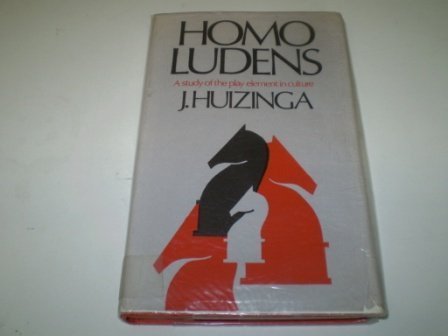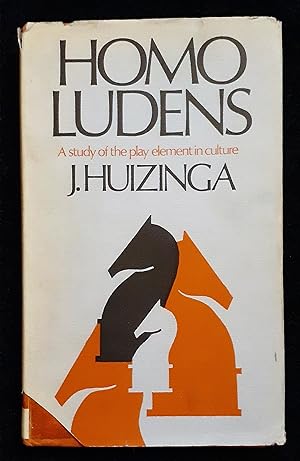9780851175010 - Homo Ludens: a Study of the Play Element in Culture by Johan Huizinga (2 results)
Product Type
- All Product Types
- Books (2)
- Magazines & Periodicals
- Comics
- Sheet Music
- Art, Prints & Posters
- Photographs
- Maps
- Manuscripts & Paper Collectibles
Condition
Binding
- All Bindings
- Hardcover (2)
- Softcover
Collectible Attributes
- First Edition
- Signed
- Dust Jacket (1)
- Seller-Supplied Images (1)
- Not Print on Demand (2)
Free Shipping
- Free US Shipping
Seller Location
Seller Rating
-
Homo Ludens: A Study of the Play Element in Culture
Published by Temple Smith, 1970
ISBN 10: 0851175015ISBN 13: 9780851175010
Seller: Anybook.com, Lincoln, United Kingdom
Book
Condition: Fair. This is an ex-library book and may have the usual library/used-book markings inside.This book has hardback covers. In fair condition, suitable as a study copy. No dust jacket. Please note the Image in this listing is a stock photo and may not match the covers of the actual item,550grams, ISBN:0851175015.
-
Homo Ludens: A study of the play element in culture
Published by Maurice Temple Smith Ltd, 1970
ISBN 10: 0851175015ISBN 13: 9780851175010
Seller: Rotary Charity Books, Albert Park, VIC, Australia
Book
Hardcover. Condition: Very Good. Dust Jacket Condition: Fair. Hardback Book Condition: Very Good Dustjacket Condition: Good but has cut out at bottom area to expose Business Library number and a couple of minor tears at top of cover. There is a faint library stamp on page 1. In Homo Ludens, Johan Huizinga defines play as the central activity in flourishing societies. He identifies five characteristics of play: it is free; it is not "ordinary" or "real" life; it is distinct from "ordinary" life both as to locality and duration; it creates order; it is connected with no material interest, and from it no profit can be gained. With cross-cultural examples from the humanities, business, and politics, Huizinga examines play in all its diverse guisesas it relates to language, law, war, knowledge, poetry, myth, philosophy, art, and much more. As he writes, "Civilization is, in its earliest phases, played. It does not come from play like a baby detaching itself from the womb: it arises in and as play, and never leaves it. "Starting with Plato, Huizinga traces the contribution of "man the player" through the Middle Ages, the Renaissance, and early modern world. With an eye for our own times he writes: "In American politics [play] is even more evident. Long before the two-party system had reduced itself to two gigantic teams whose political differences were hardly discernible to an outsider, electioneering in America had developed into a kind of national sport." With its remarkable historical sweep, Homo Ludens defines play for generations to come." A fascinating account of 'man the player' and the contribution of play to civilization."Harper's" A writer with a sharp and powerful intelligence, helped by a gift of expression and exposition which is very rare, Huizinga assembles and interprets one of the most fundamental elements of human culture: the instinct for play. Reading this volume, one suddenly discovers how profoundly the achievements in law, science, poverty, war, philosophy, and in the arts, are nourished by the instinct of play." 251pp.



